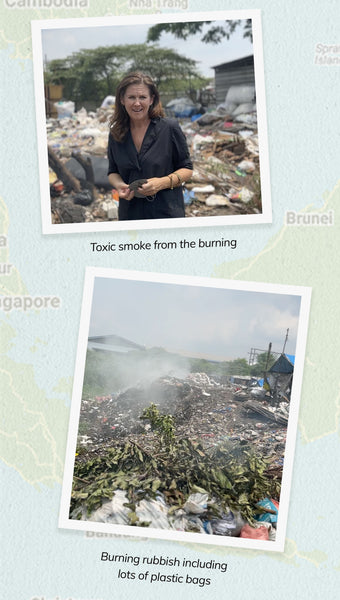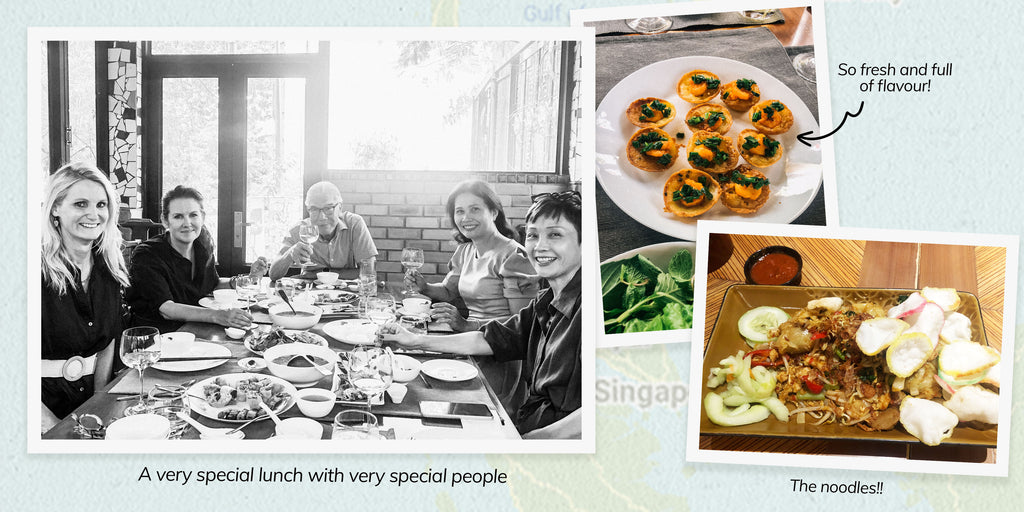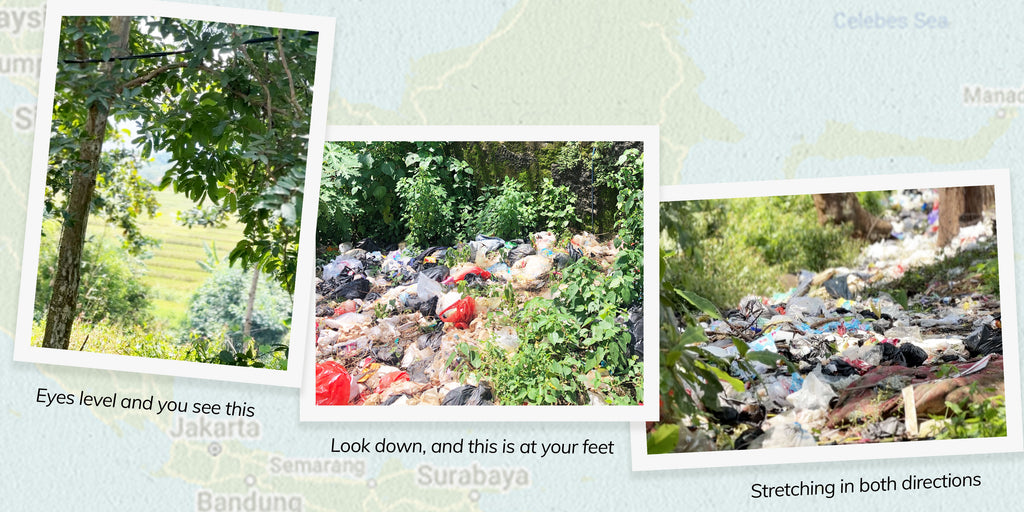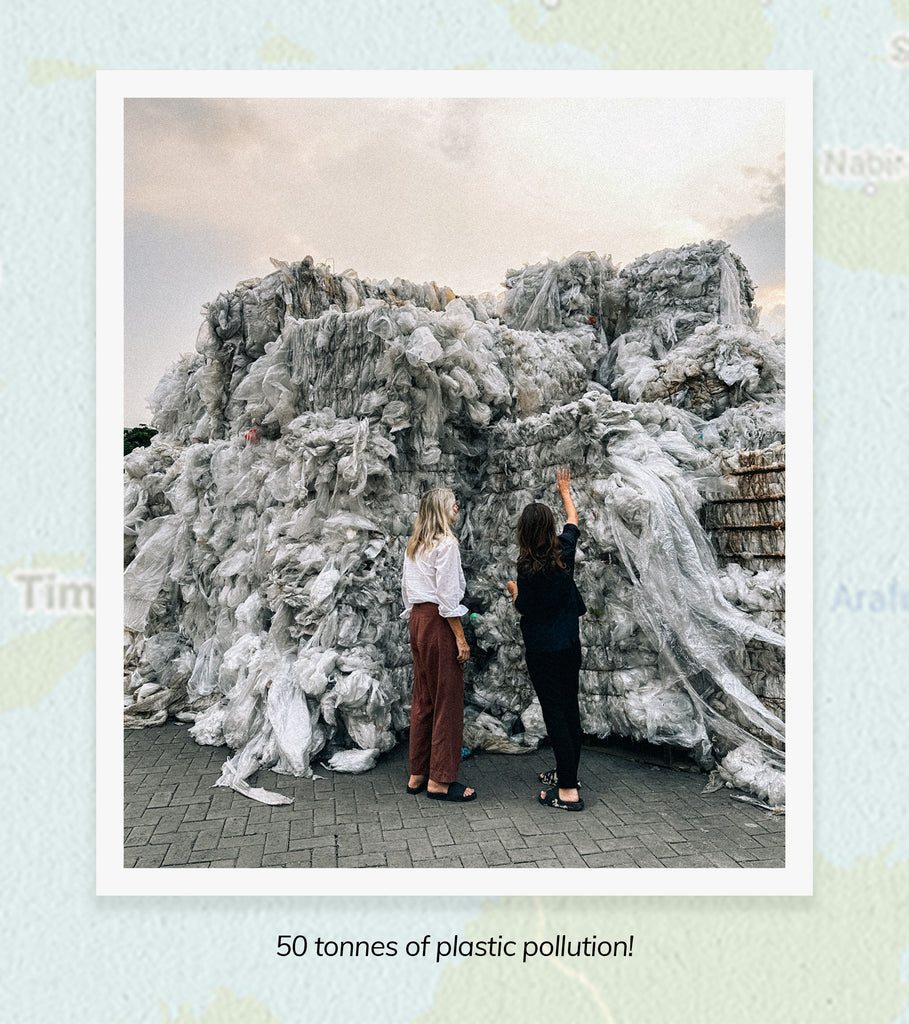Last month, my co-founder Becs and I, packed our bags for Southeast Asia to see the POLLAST!C Project in action. It's not the first time we've been, but it was definitely the most intensive trip to date and fascinating on so many fronts. Here are a few of the things we learnt.
1. The importance of a Sustainable Business Model
NGOs and non-profit organisations are doing some great work in the waste management space, but they require constant funding and the funding can be fickle. We believe that the only long term sustainable way to establish the systems needed is by creating a commercial business model to underpin them.

2. We have to make sure our impact is 'on top' of the status quo
It's super-important that our impact is incremental. What we mean by that, is that there's no point diverting resources away from the important work they're currently doing, to do our work instead. Our work has to be in addition, or 'on top' of what's currently being done.

For example, there's already a great, profitable system for the collection of plastic PET bottles supported by demand from recyclers. These bottles are recycled into all sorts of things including e.g., Adidas shoes and Macpac jackets.
If we begin to pay 'too much' for soft plastic collection, it could mean that collectors begin leaving plastic bottles in nature and prefer to collect plastic bags instead. This is not the kind of behaviour we want to incentivise!

3. We must stop plastic being burnt
While driving between appointments we would often see smoke rising from somewhere just off the road. We would stop and inevitably it would be a pile of trash on fire. Anything of value (plastic water bottles, glass and cardboard) would have been removed and the rest just set alight. By 'the rest' we mean mostly plastic bags and food waste. When plastic is burnt, greenhouse gasses are released that cause climate change. In fact, for every tonne of dense plastic burned more than two tonnes of CO2 is released into the atmosphere. Dioxins and furans—cancer-causing chemicals - are also generated. Think of what that's doing to the health of people in these marginalised communities.
Also, while burning plastic may keep some of the waste from being buried in the ground,as much as 30% of it gets left behind in the form of solid ash or slag. And guess where that ends up? Buried somewhere. This is why we believe it is as important to stop the burning of plastic as it is to stop ocean plastics.
4. The food is incredible!
On a lighter note, nothing compares to the food in Southeast Asia - a well-known fact, but one worth repeating! We were in culinary heaven.

5. But we'll try not to visit during Ramadan next time
It didn't take us long to realise we'd arrived during Ramadan. By 5:30pm every table in every restaurant was busy or reserved. Whole families were sitting with plates and plates of food on their tables but they weren't touching it, or talking for that matter. They were on their phones instead which we later realised they were doing to desperately try to distract themselves from their hunger until 6pm when they could break their fast. While this wasn't a problem for us, we did often feel uncomfortable during the days when we'd be having snacks or lunch around people who were fasting.
6. There's no point just cleaning an area up only for it to get trashed again
... and again. As well as the clean up, we have to put systems in place to make sure it doesn't happen again. This is why the Ocean Bound Plastic certification includes plastic that has been abandoned and would be abandoned, so that it encourages systems to be put in place to prevent plastic pollution recurring. e.g., As we drove through this village (pictured) we saw where the locals were dumping their household trash by the roadside and an idyllic field. There would be little point cleaning this up without also putting in a household waste collection service for the village and surrounds.

7. People in these countries are incredibly industrious
Almost everything has value and will be collected and either refurbished or recycled ... Unfortunately plastic bags are not one of them - yet! We saw an entire workshop dedicated to removing the springs from mattresses because the steel is valuable. We saw people by the roadside removing the plastic casing from wiring because again, they will be paid for the metal inside. When we put a value on 'waste' it won't be wasted, it will be collected and sold instead. It's that simple.
8. What the POLLAST!C Project has achieved is AWESOME
This is what 50 tonnes of plastic pollution looks like. The POLLASTIC Project is on track to have collected and recycled 1000 tonnes by the end of this month (April 2024) !!!

All images copyright @Better Packaging Co.




Leave a comment (all fields required)